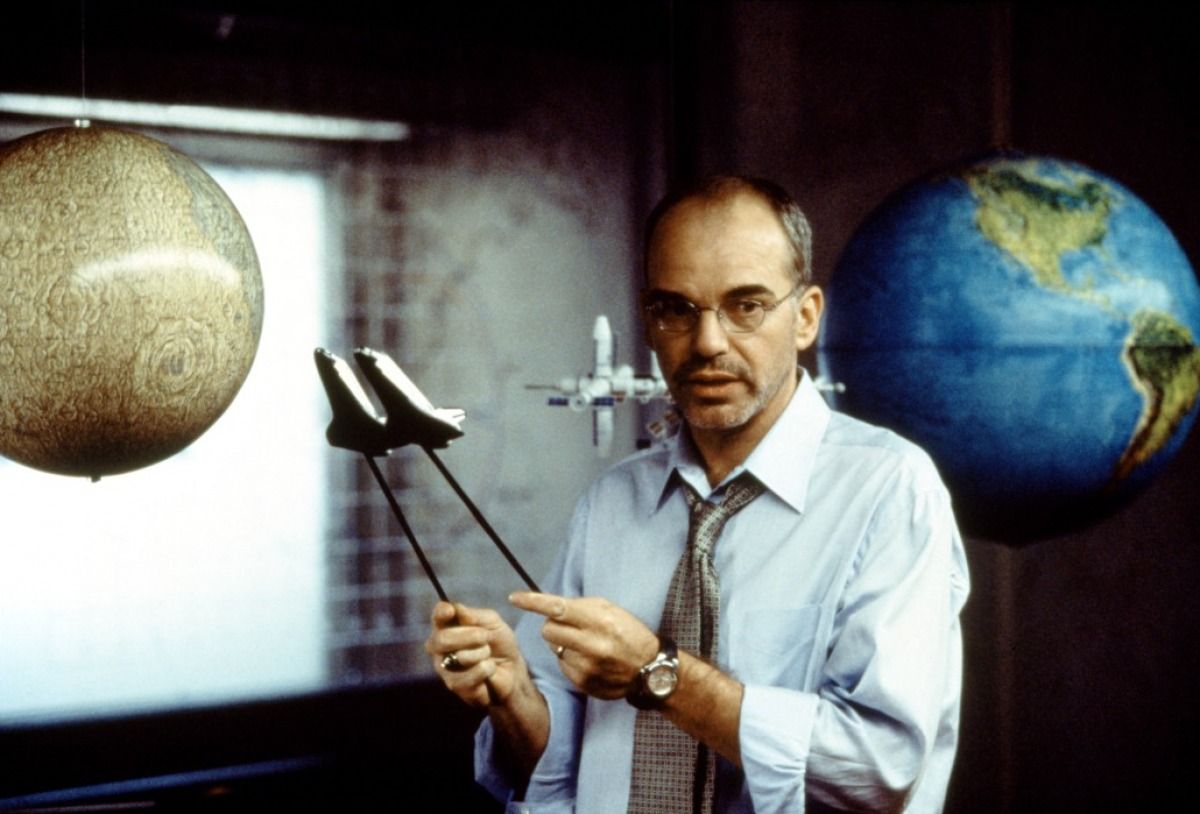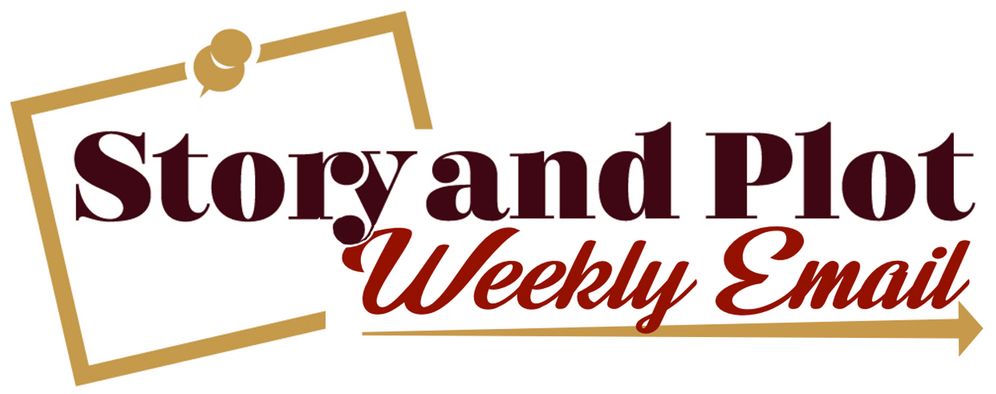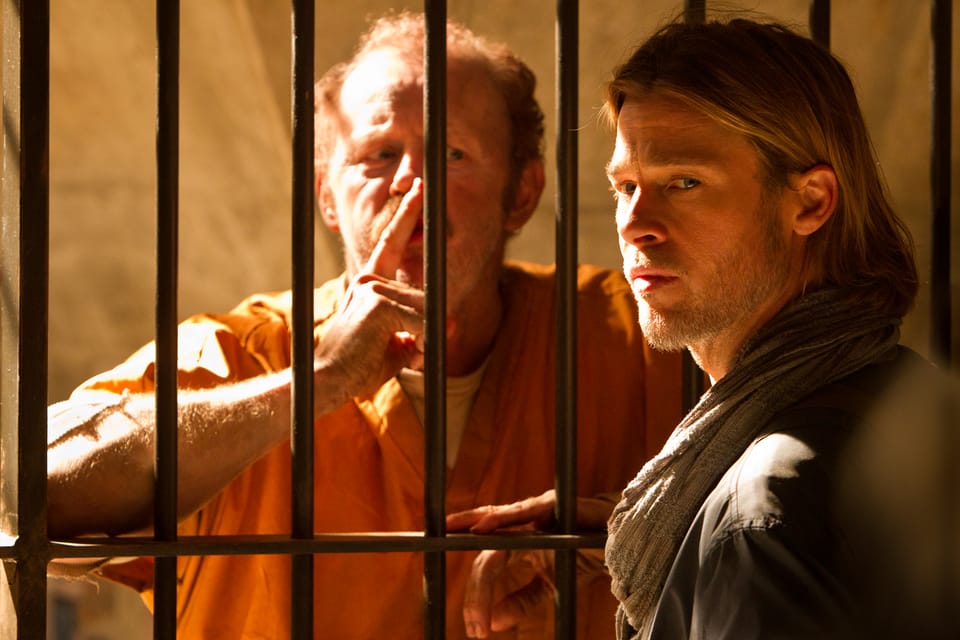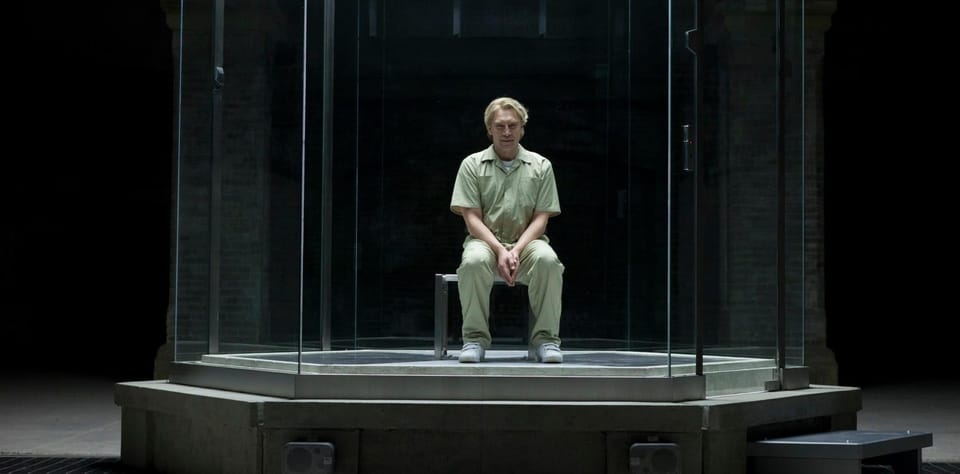Exposition: Find The Emotional Connection In Your Screenwriting
The early challenges of sloppy exposition are due mainly to a lack of confidence and trust. Which is also kind of the bad news. It takes time to develop those two things.

The Story and Plot Weekly Email is published every Tuesday morning. Don't miss another one.
The good news: exposition is easy.
The early challenges of sloppy exposition are due mainly to a lack of confidence and trust.
Which is also kind of the bad news.
It takes time to develop those two things. Confidence that you've shared enough information and trust that the audience can absorb what they need to.
As always, the goal here is to shrink that learning curve.
When I think of exposition, I break it down into two types:
The information dump
"So let me get this straight...'
When most people think about exposition, they think about the information dump.
This is the scene when we learn the necessary information for the plot.
This is obviously more common in plot-focused storylines. It's usually in the first act, too often in a meeting room of some sort, and someone is given their "mission."
The challenge, of course, is how to make this compelling for the audience.
We could just do what the CBS procedural shows do and have people talking around some computer screens while characters share the dialogue load for variety, and the camera moves like it's a Michael Bay movie.
But we should always demand more from ourselves.
The most common strategy is just to have something more interesting going on.
THE BIG SHORT is a famous example where they have celebrities explain the more complicated details. It's a fun twist on an old problem. JURASSIC PARK has the amusement park ride breakdown of DNA.
But I also want to offer up another option: have characters care.
When in doubt, lean into the emotion. When characters care deeply, we care deeply.
All three of the following examples could have easily been a scene from CSI: ANOTHER ONE. After all, each one illustrates people just sittin' around talkin', yet there is so much more going on.
RAIDERS OF THE LOST ARK - When Army Intelligence asks Indy about the city of Tannis.
What pushes this scene is the enthusiasm of Indy and Marcus.
It's not our hero who is given information. He's the one giving information to the Army.
Indie and Marcus know a secret we don't, and they're excited about it. This is their world. Throw in the stakes of Hitler, and we barely notice that they've just laid down the path for the movie's first half.
ARMAGEDDON - The entire first act.
Speaking of Michael Bay. The first act of ARMAGEDDON is maxed out in information. So much information. Much like Raiders, they don't just lay out the problem but the plan for how they're going to deal with it as well.
The movie focuses on the emotions of the stakes. This is certainly easier when the world is going to end, but it's a lesson in making it personal. Why does it matter to the hero? How deeply do they care?
Which brings us to AVENGERS: END GAME. After Stark returns.
How does the story get through its recap and information update? Through the emotional weight of failure.
The Avengers failed in the last film, and the consequences were devastating. Each character handles it differently. Somehow, a scene of "Where is Thanos?" is watched through a lens of empathy rather than plot.
This brings to mind one of the key fundamentals of my courses:
It's not about the plot. It's about the emotional reaction to the plot.
Which is the only thing the plot is good for.
Character history and background
"Let me tell you about Susan..."
This kind of exposition is always a structural question. This is information that informs a character or a relationship. Early in our writing, we tend to want to give it to the audience as given circumstances as soon as possible.
This week's topic was inspired by just such a decision. A student was writing a scene about a woman coming home to her three kids after being asked out for the first time since her husband passed.
The first thing we learned about this woman? She was a widow. Giving information away as given circumstances is exposition.
Which brings to mind another fundamental I teach.:
Never give away as exposition what would be more effective later as a reveal.
The difference between exposition and a reveal is that one is information, and the other evokes emotion.
It's possible we can create more interest from the audience by asking the question why is this woman so awkward? Why is she so reluctant to tell her kids? (Perhaps even the opposite; why is she so delighted to be asked out?)
When we hold off something to later give it as a reveal, it puts all that happened before it into context. It answers questions about behavior the audience was quietly asking.
To get answers to questions they were silently asking is satisfying for the audience. They love you when you do that.
MANCHESTER BY THE SEA is a great example. We know this guy is lost; he seems like a destructive person. It's not until 55 minutes into the film that we learn why. His children are dead. And it's his fault. And it's not until 5 minutes after that, when he grabs a police officer's weapon, that we fully appreciate the personal hell he's in.
This is a structural choice. What the audience knows and when they know it.
If the author gives that information out of the gate, we still feel his pain, but the mystery and the questions stop. We have too many answers, and the experience is different.
You are not obligated to give information about a character or a relationship upfront. This is always a structural question. That is:
When will you get the most value out of it? And that's when you share it with the audience.
Trust the audience
The audience picks up plenty. When characters behave as if something is true, the audience will figure it out.
Emotional truth is paramount.
We don't need to mangle a scene just to let the audience know the nature of a relationship.
We see the puppet strings. And we check out.
All we need to do is ensure the characters behave as if it is true, and the audience will figure it out.
Are they best friends? Cousins? They're not married.
Oh, they're siblings! That's it.
You don't have to answer questions before they're asked. You just have to win the reader's confidence so they know you will.
~
The New Wall of Love
I had never heard of this term until I started collecting testimonials for the Story and Plot courses. It's pretty much what it sounds like! It's a collection of testimonials for all my various classes.
Click here to visit the Story and Plot Wall of Love.
Did you know, after teaching for 23 years, not one person has ever asked for a refund?
Not one.
I'm not asking anyone to break that record; I'm just saying... I think you'll like what we do.
Podcast Alert
The Pink Smoke
This podcast is up there with my favorites. John and Chris are smart and funny, and they know film much better than I do. I have been fortunate enough to guest on this show four times now.
In this episode, we talk about two films, including one of my personal all-time favorites, VICE SQUAD.
It's a thorough conversation, which is one of the things I like about this podcast. We just talk about something we love.
Click here to visit The Pink Smoke.
The Successful Screenwriter
This is a long-running podcast on screenwriting. We talk mostly about WINCHESTER, which as many of you know, is not my favorite topic. But it's a brisk 25 minutes, and Geofrey is a teacher himself, so he tends to approach it from that angle as well.
Click here to visit the episode.
That's a wrap for this week!
Hope this helped.
As always, thanks for subscribing and allowing me do this.
All the best,
Tom
The Story and Plot Weekly Email is published every Tuesday morning. Don't miss another one.
When you're ready, these are ways I can help you:
WORK WITH ME 1:1
1-on-1 Coaching | Screenplay Consultation
TAKE A COURSE
Mastering Structure | Idea To Outline




